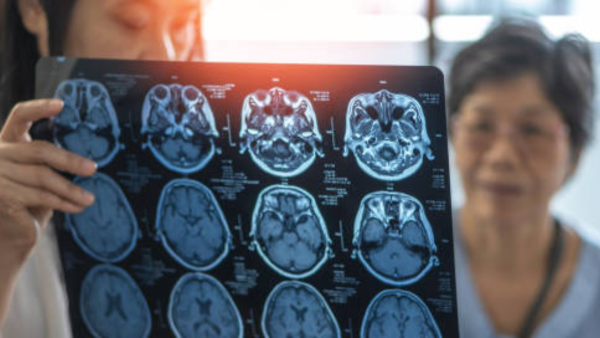
For 24 year old Chee Ming Heng, the year 2024 was a year of survival and recovery. The young adult was diagnosed with a deadly brain disorder that is rarely seen in adults, as per the MayoClinic.
On his first day of work experience on Feb 8, he realised that he struggled to write his name on the time sheet, said the student at LaSalle College of the Arts, reported The Straits Times.
A few days, in an event he realised that he is unable to hold the cutlery properly. Two days later, his face started drooping.
"The doctor there told Mr Chee that he had signs of stroke – arm weakness and inability to smile properly, even though his walking and speaking abilities were normal – and he needed to go to the hospital immediately. There, the neurologist first suspected some sort of autoimmune vascular condition , but after a scan and further tests to rule out other conditions, Mr Chee was diagnosed with moyamoya disease ," the report stated.
Moyamoya means "puff of smoke" in Japanese
As per MayoClinic, Moyamoya disease is most commonly seen in Japan, Korea and China and is associated with certain conditions, such as Down syndrome, sickle cell anemia, neurofibromatosis type 1 and hyperthyroidism.

Common signs of the disease are headache, seizures, weakness or numbness, vision problem, trouble speaking, involuntary movements. Activities like exercise, crying, coughing, straining or a fever can trigger the symptoms.
"Moyamoya can be challenging to diagnose"
Usually these patients experience minor strokes. According to Dr Chen Min Wei, the neurosurgeon who performed a bypass operation on Chee, it is very difficult to diagnose the disease "and there have been cases where doctors have taken up to a year to confirm the diagnosis because it was suspected only after a third or fourth stroke." Dr Chen does eight to 10 bypass operations a year.
Chee stepped out of his flat, two weeks after surgery
Chee was operated in May and a new blood vessel was created to ease the flow of blood into the right side of the brain. Post surgery Chee had to relearn driving and had to practice writing and typing.
“Post-operation, I had just woken up, and when they came, I was just happy to see them,” said Chee of his parents.
 For 24 year old Chee Ming Heng, the year 2024 was a year of survival and recovery. The young adult was diagnosed with a deadly brain disorder that is rarely seen in adults, as per the MayoClinic.
For 24 year old Chee Ming Heng, the year 2024 was a year of survival and recovery. The young adult was diagnosed with a deadly brain disorder that is rarely seen in adults, as per the MayoClinic.
